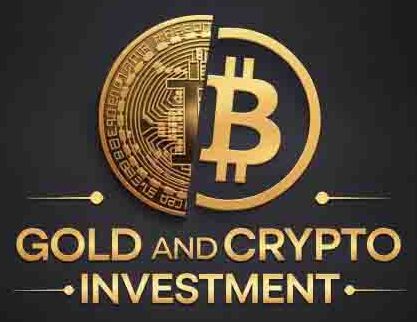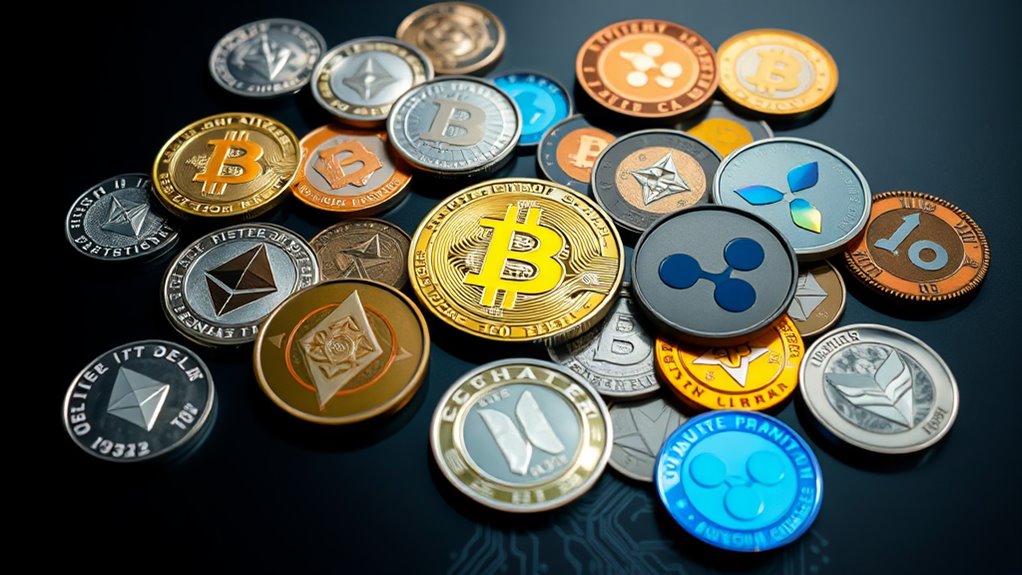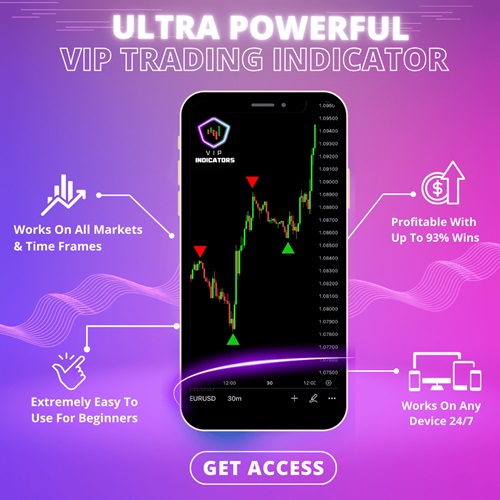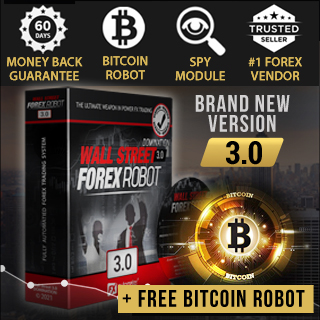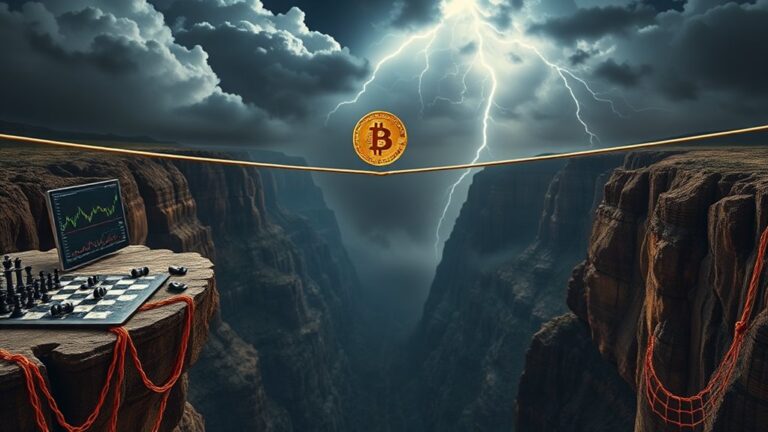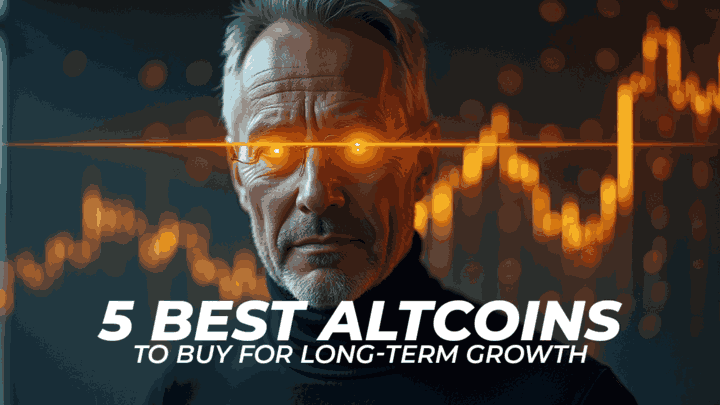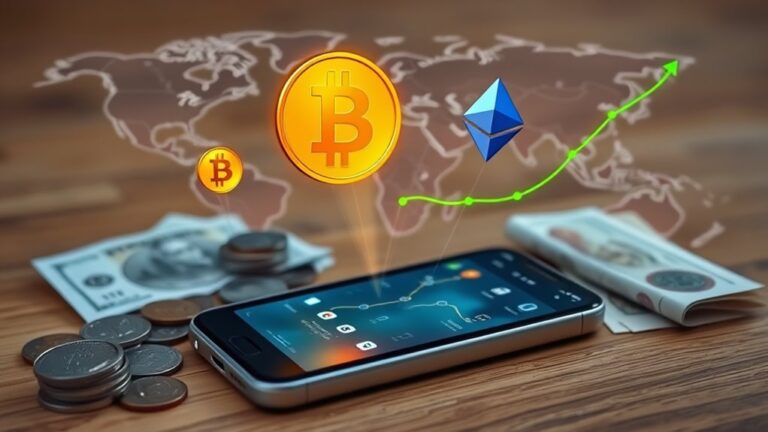What Is an Altcoin?
Note: This post may contain affiliate links, and we may earn a commission (with No additional cost for you) if you purchase via our link. See our disclosure for more info. The gold and crypto world is constantly changing. This is not financial, investment, legal, or professional advice. So, please verify the information on the gold and cryptocurrency provider’s websites.
Altcoins are basically any cryptocurrency that isn't Bitcoin. Yep, there are over 5,000 of them out there, designed for different purposes and operating on established blockchains. Some are focused on payments, while others might be stablecoins linked to traditional currencies or privacy coins keeping transactions hush-hush. Sure, they promise faster speeds and some nifty tech, but good luck with the wild price swings. Interested in what makes this chaotic world tick? There's more to uncover.
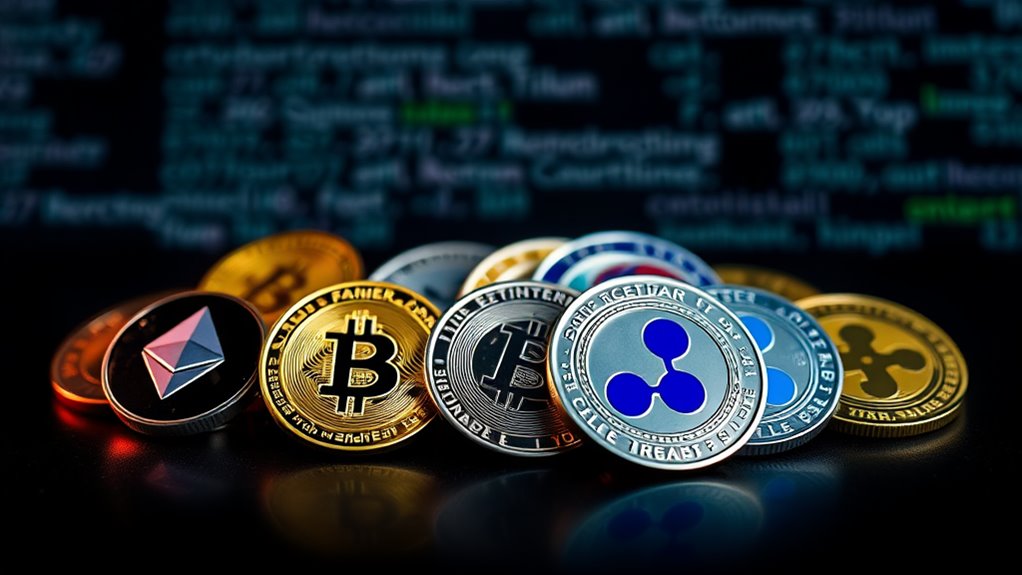
When people think of cryptocurrencies, Bitcoin usually steals the spotlight. But let's not forget about altcoins—the alternative coins that have burst onto the scene since Bitcoin did its thing back in 2009. Altcoins, a blend of the words “alternative” and “coin,” refer to any cryptocurrency that isn't Bitcoin (and sometimes Ethereum, but let's not complicate things).
With over 5,000 altcoins out there, it's a wild world of options. Ethereum, Ripple, Tether, Litecoin, and Solana are just the tip of the iceberg. Over 5000 alternative currencies have been created worldwide, showcasing the continuous growth in the number of cryptocurrencies. Many altcoins are designed to operate on existing blockchain networks, which allows them to serve specific functions within their ecosystems.
These altcoins aim to fix Bitcoin's shortcomings or bring something fresh to the table. They come in various flavors. Payment tokens like Bitcoin Cash are all about transactions. Stablecoins, such as Tether, cling to fiat currencies for stability—because who needs volatility, right?
Then there are privacy coins like Monero, designed to keep your transactions hush-hush. Utility tokens serve niche purposes in specific ecosystems, while security tokens represent ownership of real assets—like a digital ticket to the ownership game.
What sets altcoins apart? For starters, they often boast faster transaction speeds and better energy efficiency than Bitcoin. Many utilize different consensus mechanisms, like Scrypt or Proof-of-Stake, making them more nimble.
They also explore smart contracts and decentralized applications, pushing the boundaries of what cryptocurrencies can do.
However, it's not all sunshine and rainbows. The altcoin market is notoriously volatile. One day an altcoin is soaring, the next it's crashing harder than a bad reality show.
Investors need to tread carefully—research is essential. With so many options, choosing wisely is a must. Many altcoins won't survive in the long run, and that's just the way it is. Market saturation is real, and not every coin is destined for greatness. Strategic investors often include altcoins with varying market capitalizations to balance potential growth opportunities against the stability offered by established cryptocurrencies.
Frequently Asked Questions
How Do I Choose a Reliable Altcoin for Investment?
Choosing a reliable altcoin? Start by looking for real-world uses. If it solves problems, great!
No clones allowed; find something unique. Check the team—are they legit? A solid roadmap is essential; no one likes delays.
Keep an eye on market metrics—liquidity matters, folks. An active community? That's a good sign.
Partnerships and adoption rates? Yup, they count. In the wild world of crypto, do your homework. Don't just plunge in blindly!
What Are the Risks Associated With Investing in Altcoins?
Investing in altcoins? Brace yourself. The risks are wild. Prices swing like a pendulum—20% drop in a day? Totally normal.
Scams lurk everywhere, waiting to pounce. Hacking? Yup, wallets get breached.
Regulatory changes can wipe projects off the map overnight. And let's not forget the tech side—errors can turn your funds into digital dust.
The whole scene is a chaotic rollercoaster, and not the fun kind. Buckle up!
Can Altcoins Be Used for Daily Transactions?
Sure, altcoins can be used for daily transactions, but good luck finding a merchant who accepts them.
Stablecoins like USDT? Great for buying coffee.
But those flashy altcoins? They're more like rollercoaster rides—up one minute, down the next.
Transaction speeds can be lightning-fast, but volatility? That's a buzzkill.
Sure, some are improving with payment gateways, but unless you're buying NFTs or in DeFi, you might be better off sticking with cash.
What Platforms Are Best for Trading Altcoins?
When it comes to trading altcoins, a few platforms stand out.
Binance? A powerhouse with over 350 options and tiny fees.
KuCoin? More like a candy store with 750+ altcoins, plus staking.
OKX offers a sleek interface and DeFi features, but watch those fees.
Crypto.com? They throw in Visa cards for fun.
The choices are overwhelming, but hey, variety is the spice of life.
Just pick one and plunge in!
How Do Altcoins Compare to Traditional Cryptocurrencies?
Altcoins are like the wild child of the crypto family, always trying to break free from Bitcoin's shadow.
They might be faster, offer smart contracts, or cater to niche markets, but they also come with a hefty dose of risk.
Volatility is their middle name, and many are just here for a short party before disappearing.
Sure, they can promise big returns, but don't forget: with great potential comes great uncertainty.
